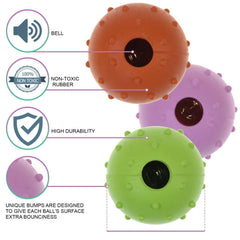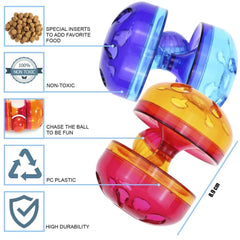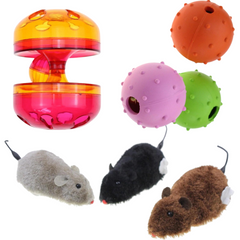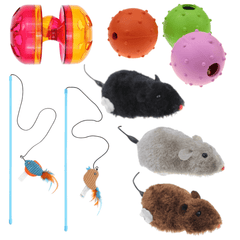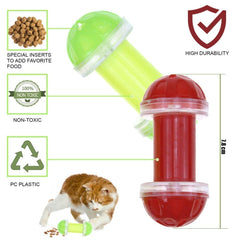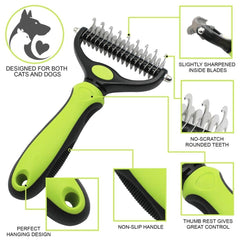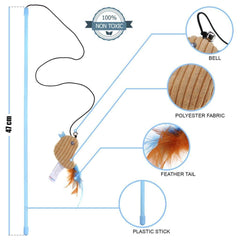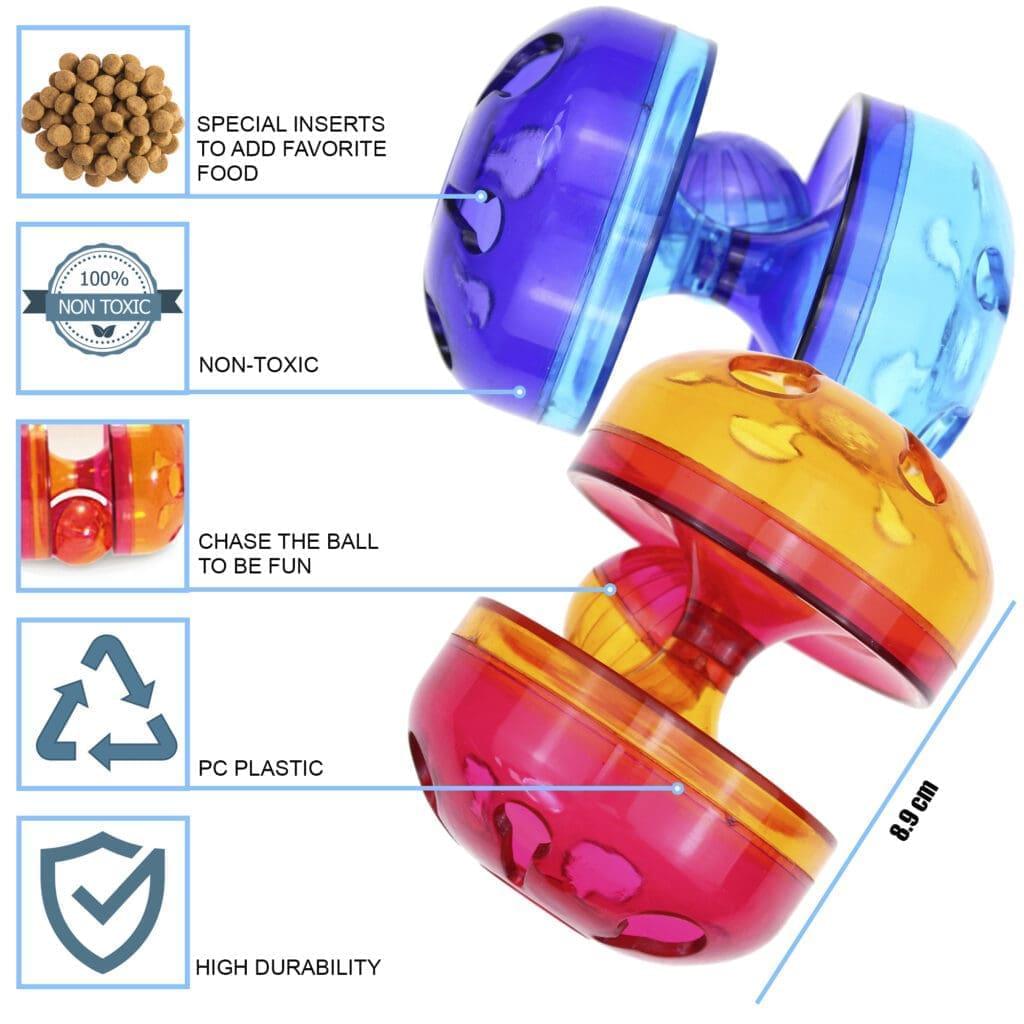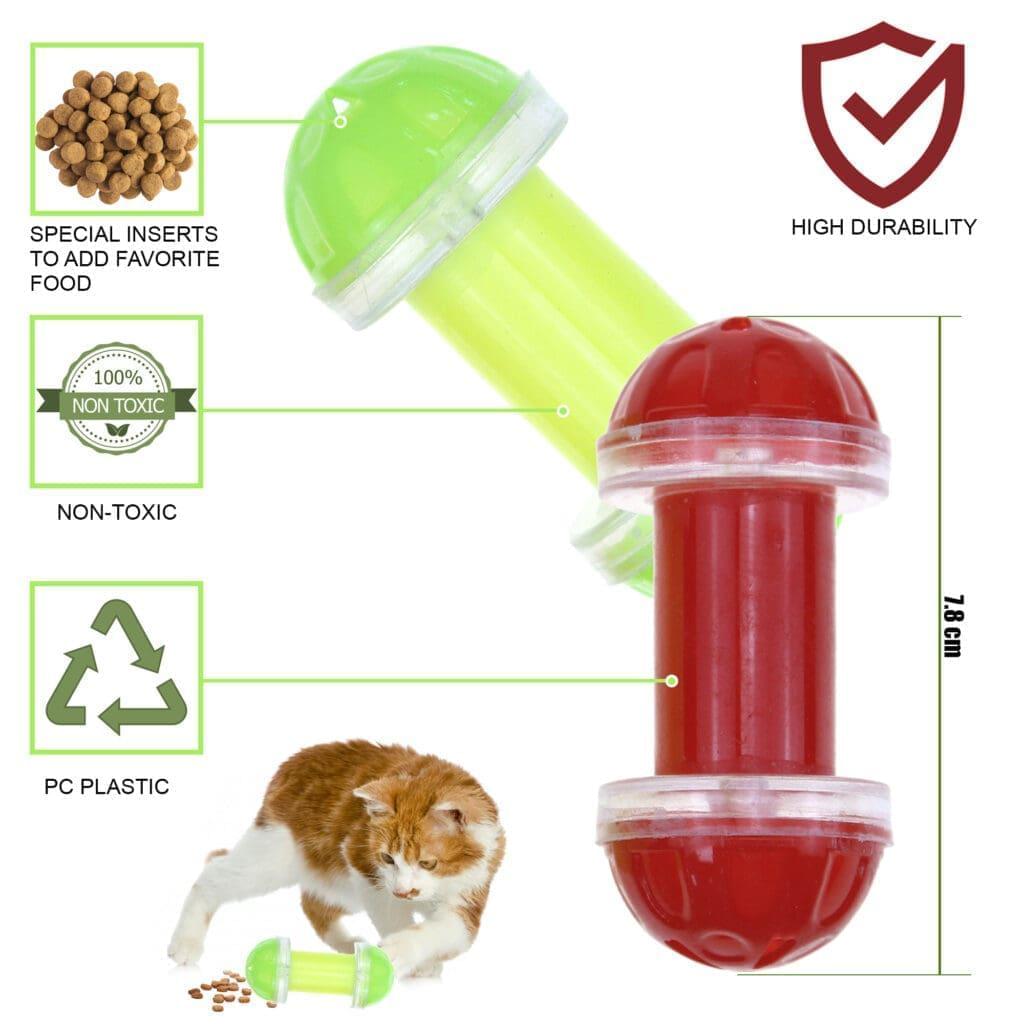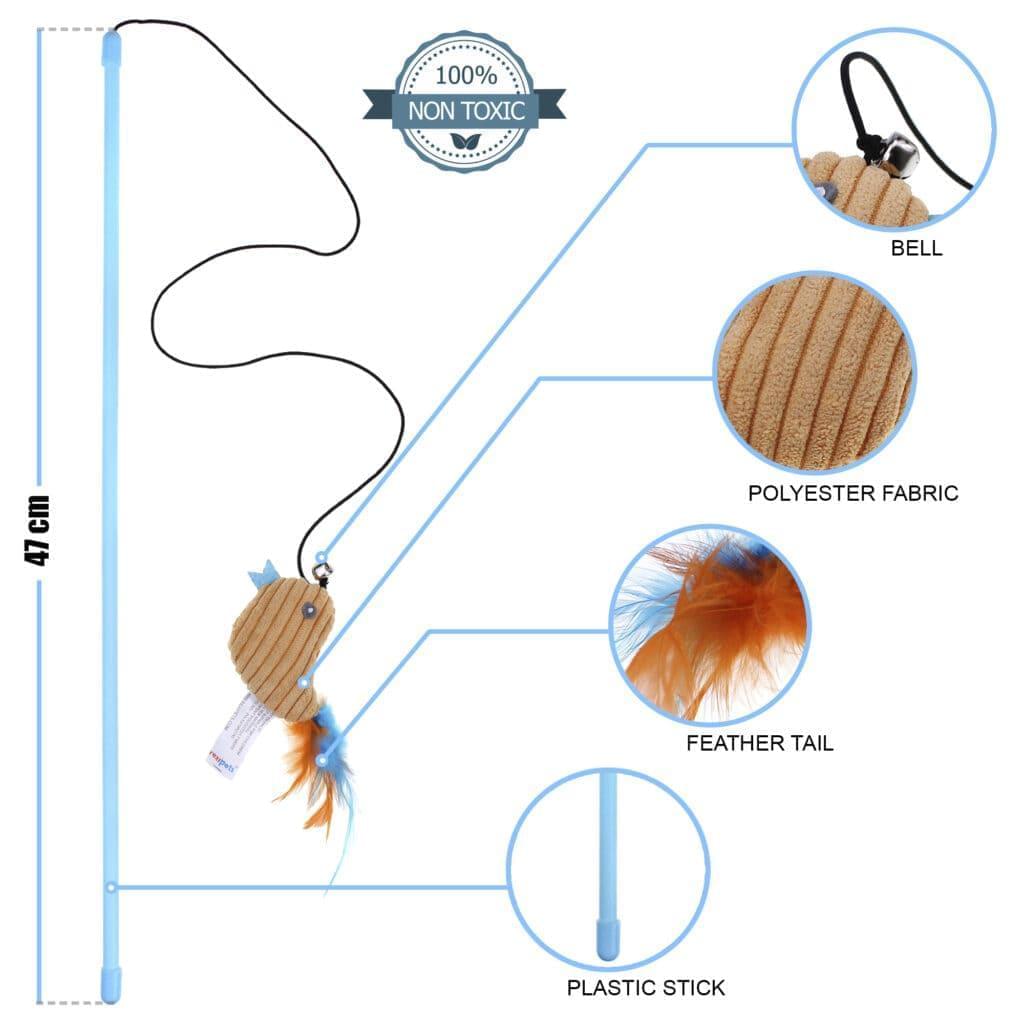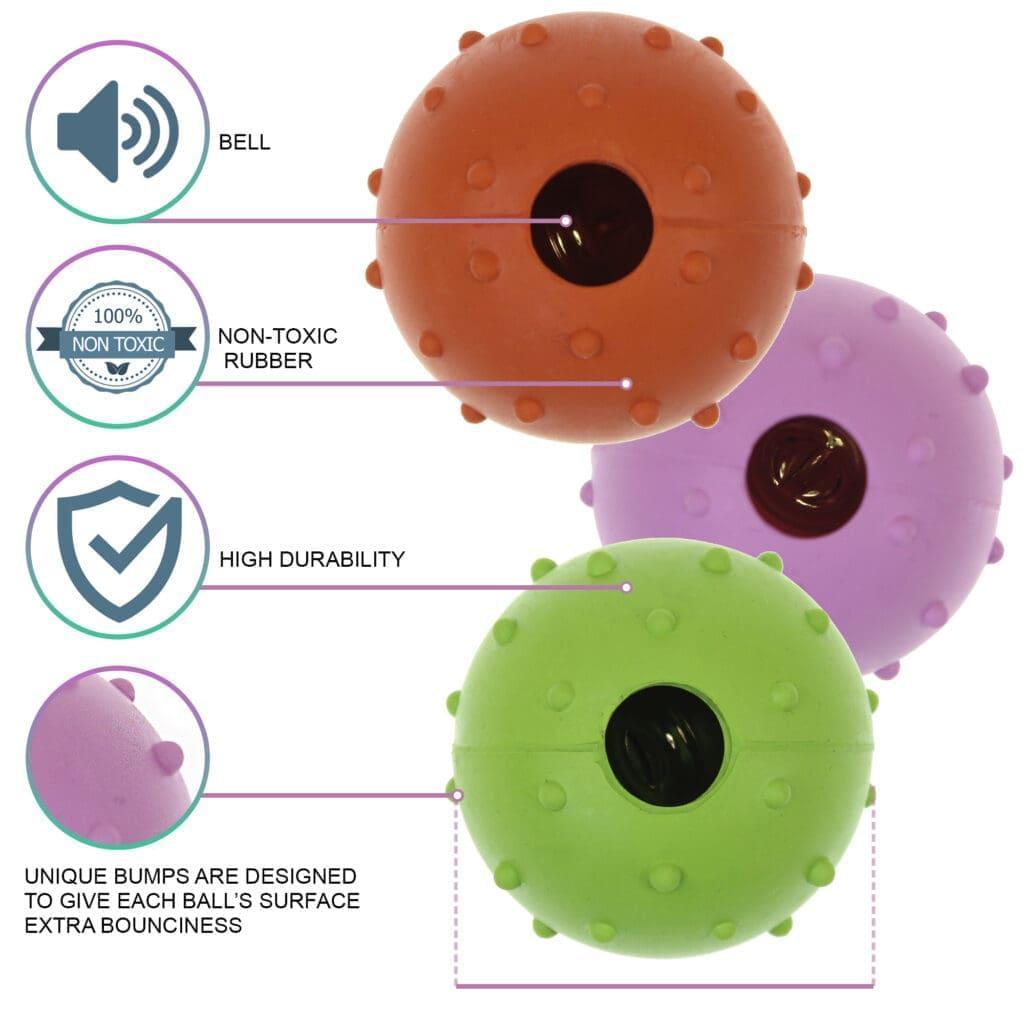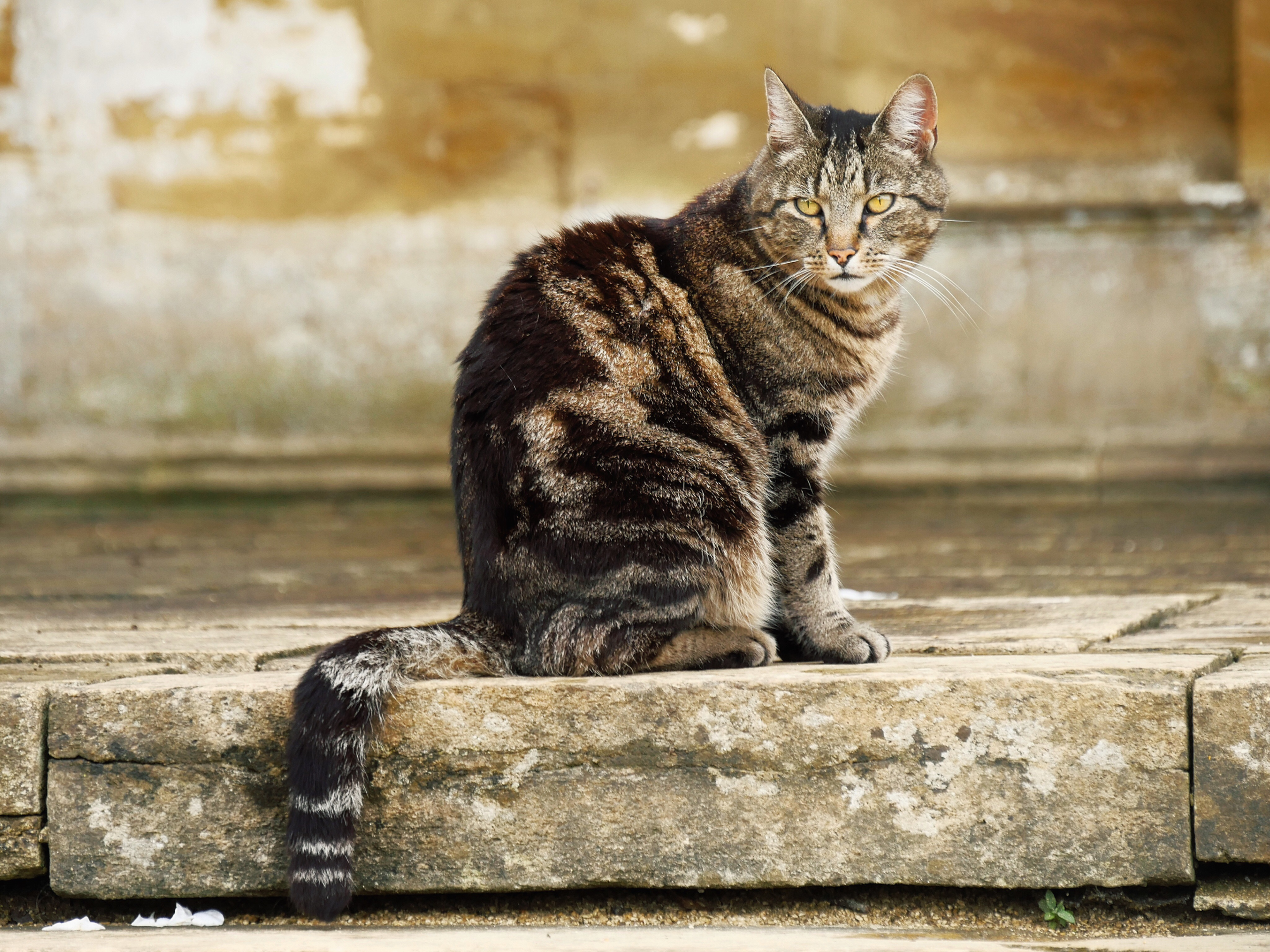
Is your senior cat scratching a lot more than usual? Chances are they are bothered by fleas. As cats get older, they can face more health issues and might not be able to groom themselves as often or thoroughly, which might lead to them developing fleas.
Today's blog is all about helping senior cats with flea problems. We'll talk about what makes older cats different and look at gentle ways to keep them comfy and free from those pesky fleas.
Let's figure out how to take good care of our older cats and keep them happy in their later years!
Why Treating Fleas Is Important For Senior Cats
Older cats are more likely to have weaker immune systems than adult cats, making fleas a bigger problem for them. If a senior cat gets flea bites and starts scratching a lot, they can hurt themselves and open up a wound, leading to skin irritation or, in extreme cases, infections.
Skin infections from flea and ticks are particularly harder for senior cats to fight off. They might also be at a higher risk of blood loss, which can cause anaemia. So, it's important to find a way that efficiently kills fleas.
How To Find Out If Your Senior Cat Has Fleas?
Now, the main question is how to tell if your cat has fleas.
There are three main signs that might suggest your senior cat is dealing with fleas. If you observe any of these symptoms, it's crucial to take your cat to the vet for a thorough examination and diagnosis ASAP:
-
Adult fleas
As a cat owner, one can easily tell if your cat has fleas by inspecting your cat's coat for insects. Fleas look like tiny black seeds; they don't fly but jump instead. You might notice them hopping out of your cat's fur, particularly around the bottom of the tail. This area is a hot spot for identifying fleas.
Keep an eye out for these small, jumping pests because these are a clear indicator of a flea presence on your cat.
-
A Scratchy Cat
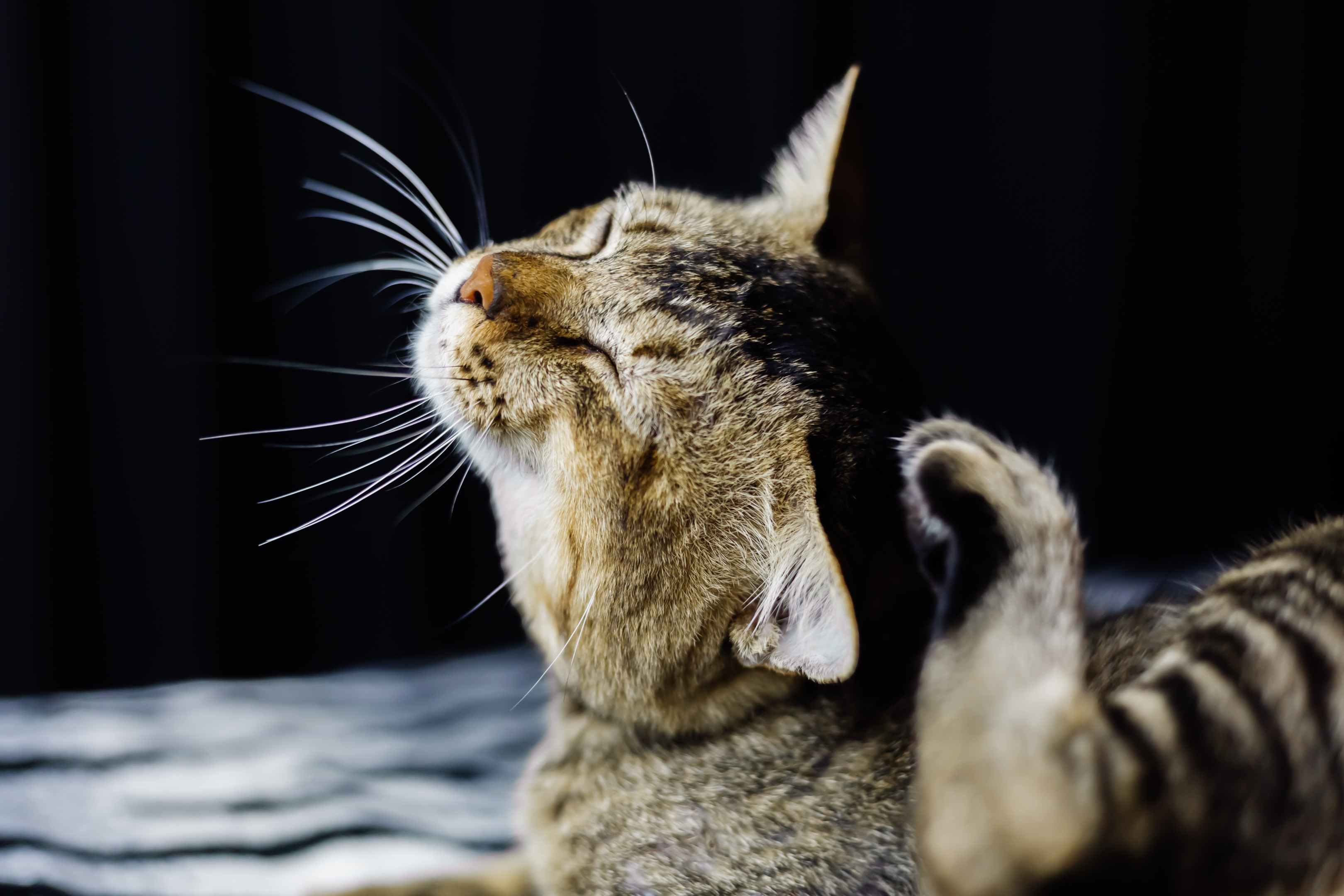
If your cat seems restless and uncomfortable and is often scratching, biting, or licking its fur, it's time to investigate further. Grab a magnifying glass and inspect your cat's skin for small red bumps, which can be a result of flea bites.
It's worth mentioning that if your cat is allergic to fleas, it may be challenging to distinguish between a single flea bite and a more serious infestation.
-
Flea dirt
Flea dirt is a term commonly used to describe flea poop – tiny black specks of faeces that fleas leave on your cat's skin and fur.
3 Ways for Flea Treatment for Senior Cats
Creating a consistent routine for flea control is a great strategy to keep your senior cat flea-free. However, not all flea-control methods suit older cats; some may have age or weight restrictions. Like any medication, it's crucial to consult your veterinarian before initiating a flea prevention plan for your cat that kills adult fleas and gets rid of flea larvae.
So, without any further ado, let's take a closer look at the most effective flea treatment, but remember, your vet is the best person to advise on the most appropriate solution for your senior cat's specific needs:
-
Pills
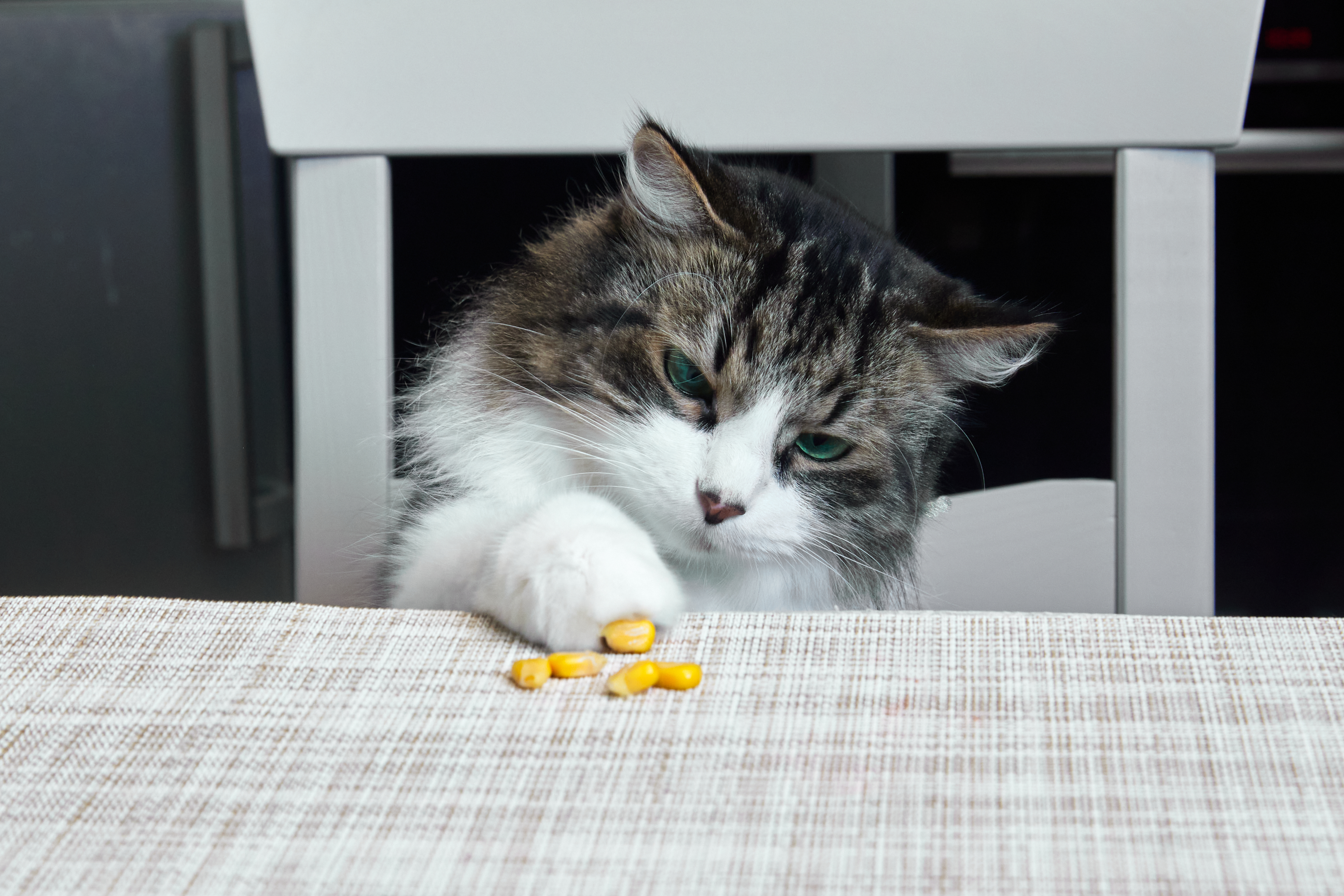
Giving your cat monthly flea medicine by mouth can be a bit tricky. Putting your hand in your cat's mouth is not the most enjoyable task. But don't worry; your vet might suggest a helpful tool called a "pill gun" to make it easier and safer for your kitty to swallow the medicine.
Moreover, your veterinarian will also suggest the best cat flea medicine available on the market customized to the health condition of your cat.
-
Liquid topical treatments
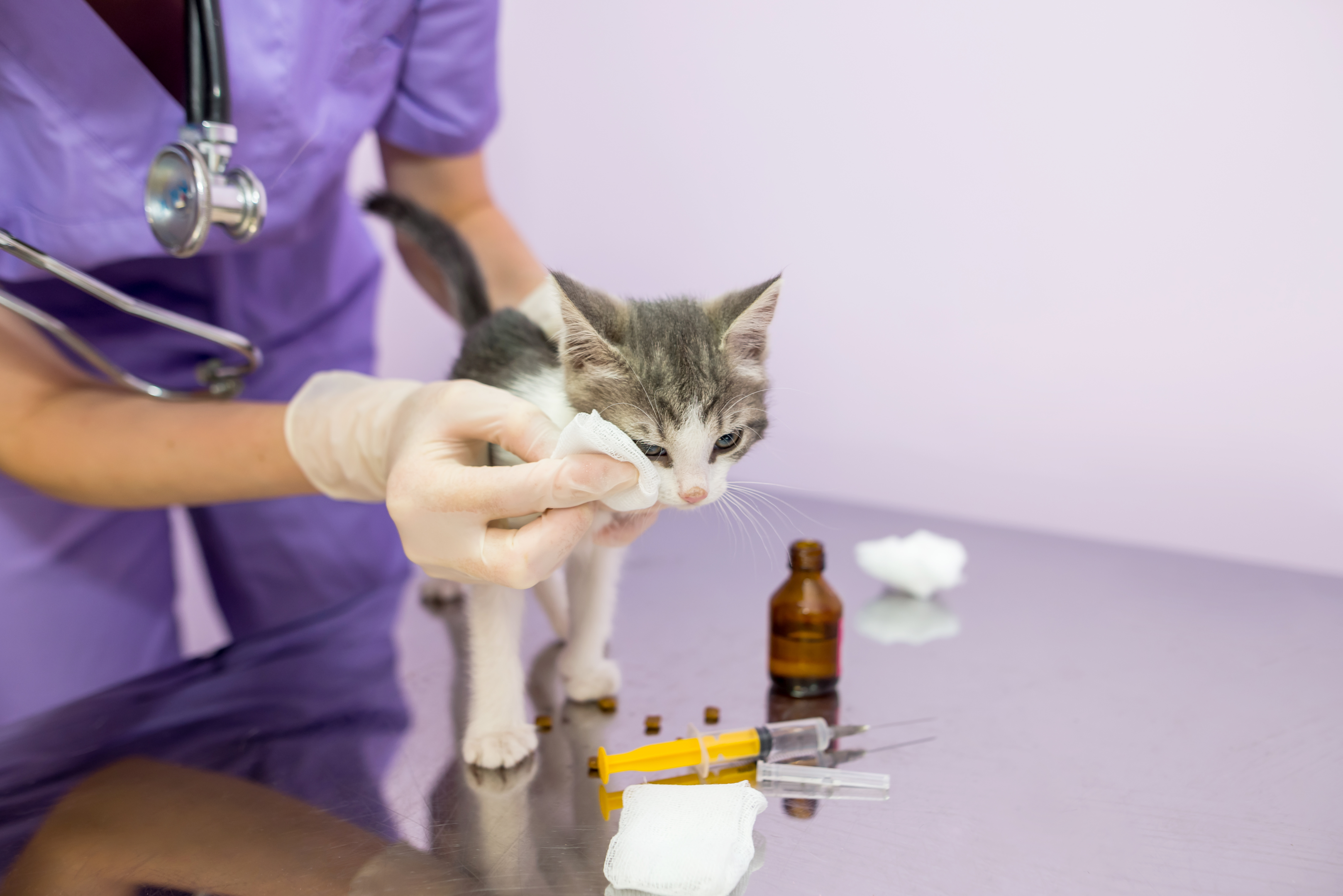
Liquid flea control treatment for cats is like medicine in a liquid form that you put on your cat's fur, usually once a month. Before you use it, it's important to read the instructions carefully to know how much to use and where to put it on your senior cat.
Typically, you apply the topical solution between your cat's shoulder blades. The liquid has active ingredients that kill fleas and spread on its own, so there's no need to rub it in to prevent fleas.
-
Collar
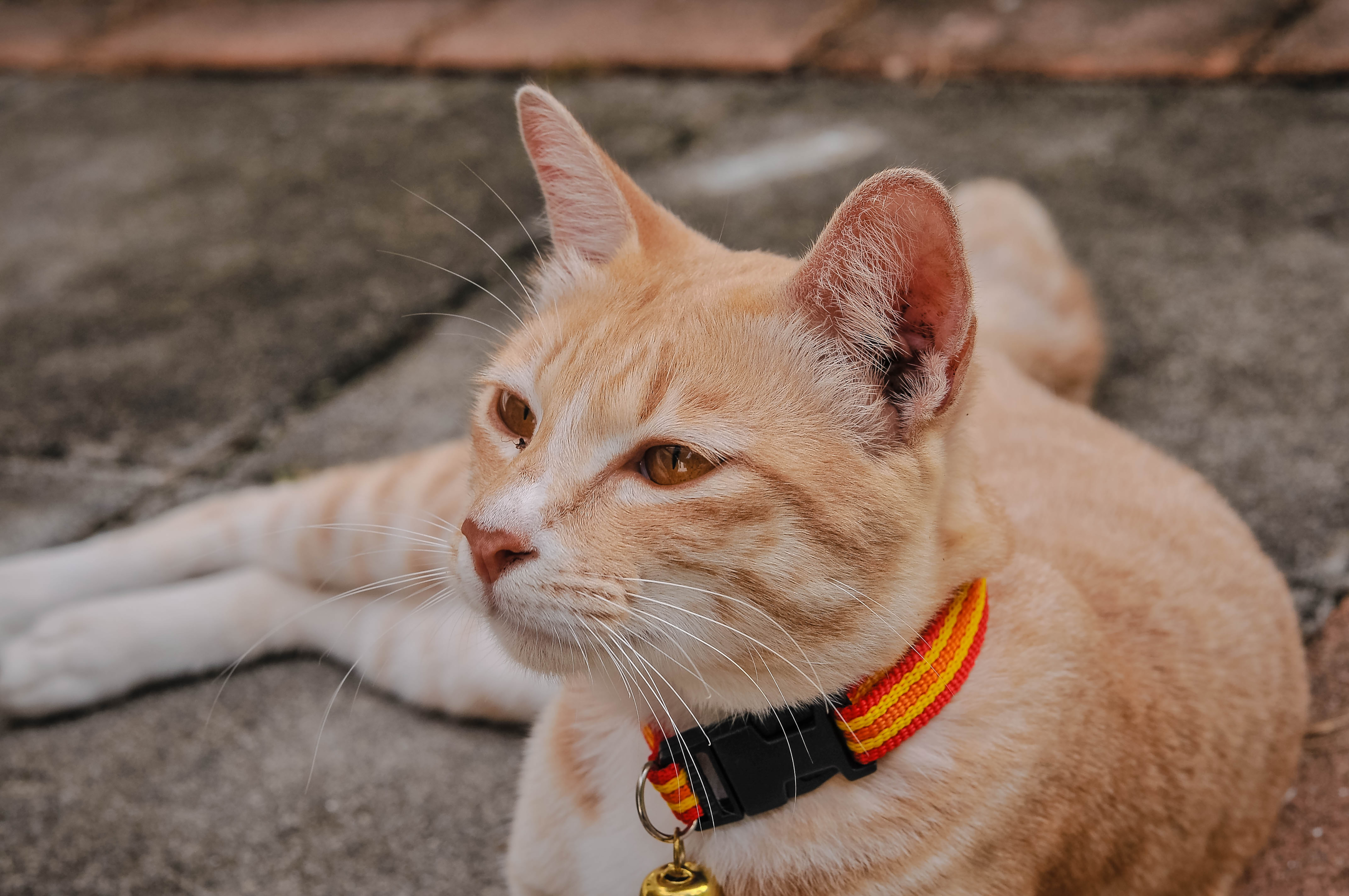
Flea collars are put around a cat's neck and typically work for up to a month. These collars are designed to release substances that help keep fleas away from your cat. They're a wearable continuous protection against fleas.
It's important to choose a collar that fits your cat comfortably and to follow the instructions on how to use it properly. Remember that not all cats like wearing flea collars either, so it's a good idea to monitor your cat's comfort while using a flea collar.
Measures For Treating Fleas In Your Senior Cat
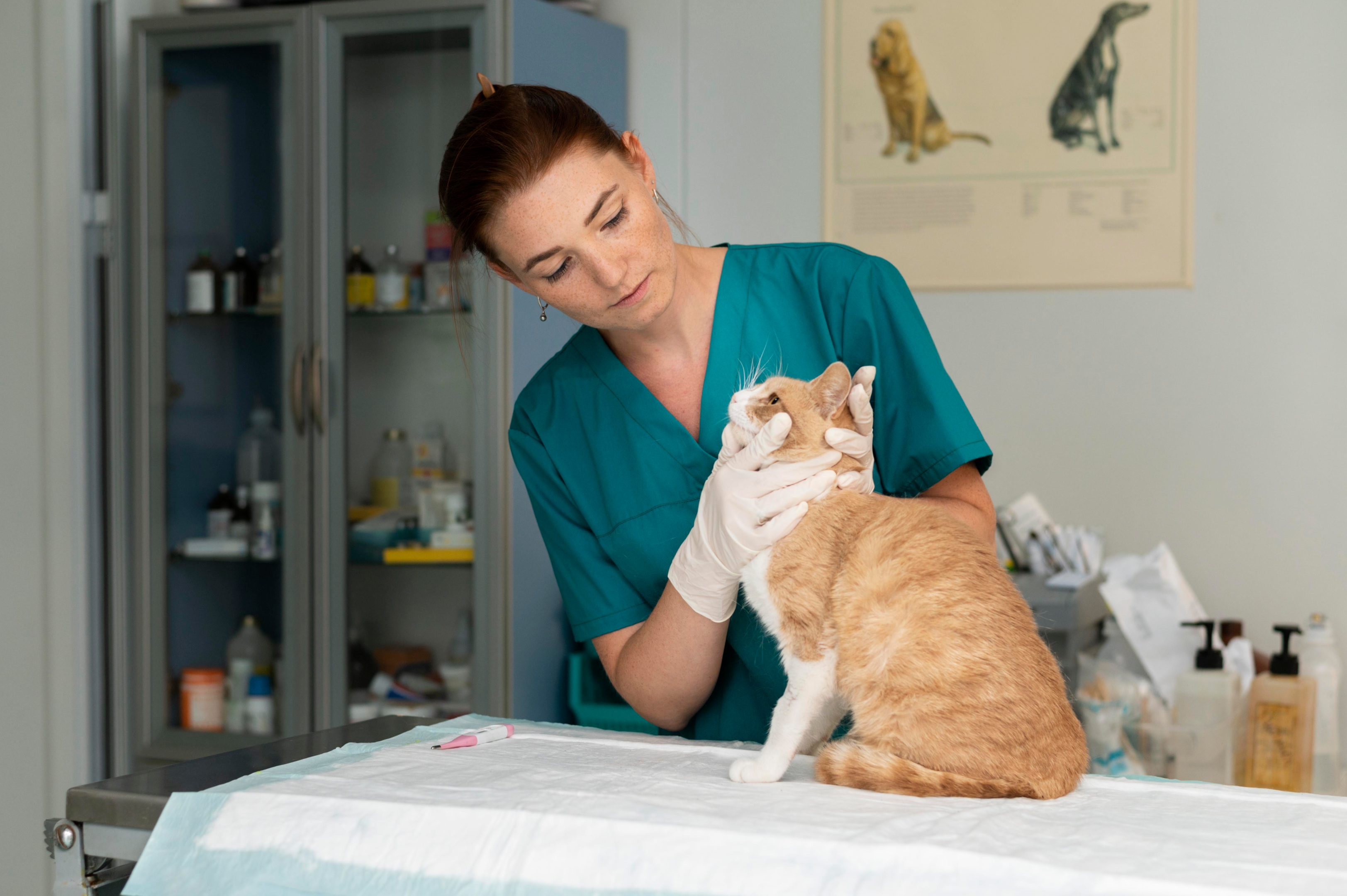
The first action plan is to take your cat to the vet as soon as you spot the flea infestation on your senior cat. The vet will check your cat's health and decide the best way to tackle the flea problem. They might suggest prescription medicine, flea products, or other treatments you can buy without a prescription, like flea shampoos, Flea Comb for Cats, or Slicker Brush.
Seek advice from your vet if you should also treat other pets in your household for fleas.
However, it is advised not to use flea products meant for dogs on your cats. These dog flea treatments can be harmful and even toxic to cats, posing a serious risk to your senior cat's health. Always choose products specifically designed and labeled for use on cats, and consult with your veterinarian to ensure the safety and well-being of your furry friend.
Moreover, to prevent flea infestations, regularly vacuum and steam clean the carpets in your home and car to help eliminate fleas and their eggs. Additionally, wash your cat's carrier and any bedding where your cat sleeps, including your own bedding, using hot water.
This thorough cleaning routine helps remove fleas from all surfaces and minimizes re-infestation chances. Hot water effectively kills flea eggs and larvae, contributing to a cleaner and much safer environment for you and your cat.
There are more flea control product options that are designed to help kill fleas and their eggs from your living space like a flea bomb. Consult with your veterinarian to figure out if using a topical product, a flea bomb, fogger, or powder is the right choice for treating fleas in your home.
Your vet can provide guidance on which method is most suitable based on the severity of the cat flea infestation and the specific needs of your household based on the flea life cycle. It's essential to follow their advice to ensure a safe and effective solution for both you and your pet.
Ensure the safety of your pets by taking them out of your home when using these products, as they can be harmful.
Practice good hygiene by washing your hands after touching your cat or cleaning their litter box. This helps prevent the spread of fleas, flea eggs, pupae, and tapeworms to both humans and other animals in your household.
Moreover, if the flea infestation in your home is severe, think about hiring a pest exterminator for effective and professional assistance.
Final Words
Taking good care of your older cat's flea troubles is important for their happiness. Senior cats can struggle more with fleas, so it's crucial to pick the best flea treatments suited to the specific condition of your cat.
Always check with your vet first, whether it's pills, liquid solutions, or collars. Keeping your cat's living space clean and practicing good hygiene helps a lot. By staying watchful and getting help when needed, we can make sure our senior cats have a cozy and joyful time as they grow older.
FAQs
Can humans get infested by fleas?
Yes, fleas can bite humans, but it's important to note that the specific type of flea that typically infests cats may not necessarily infest people. If you notice small, itchy red bumps on your ankles, it could be a sign of fleas in your home.
Can indoor cats get fleas?
Yes, indoor cats can get fleas. Other pets like dogs, outdoor cats, or animals inside the house can bring fleas in. Additionally, if your cat has access to a patio, balcony, or window screen exposed to the outdoors, fleas can easily hop onto them.
Can you combine oral and topical flea products?
It's not a good idea to use oral and topical flea treatments on your cat simultaneously, as it can trigger an adverse reaction. Even if some products seem okay together, asking your vet before trying them is safer. Your veterinarian knows what's best for your cat and can help you choose the right treatment for killing fleas in cats.
